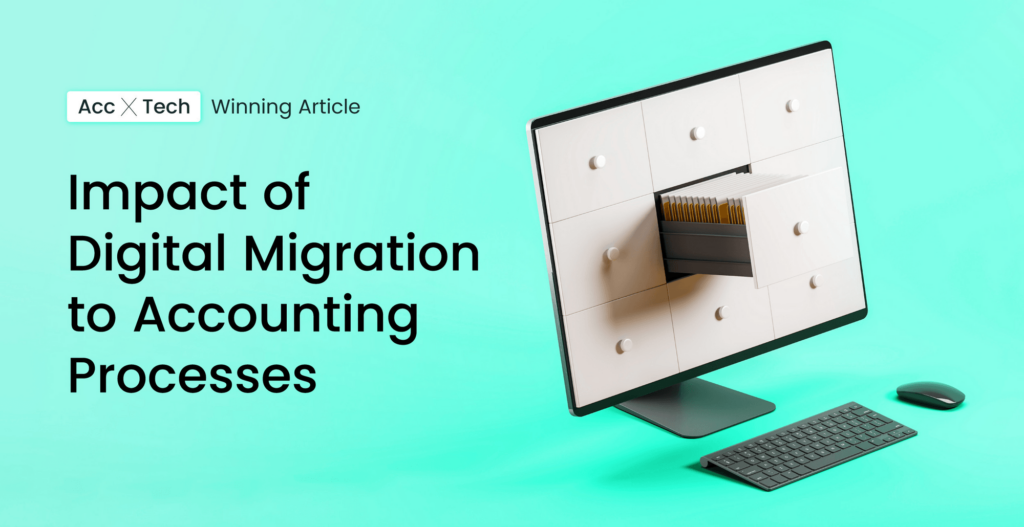The technology revolution, also known as the digital revolution, has been accelerated by the onset of the COVID-19 pandemic. It has had a profound impact on the world, without the exception of the Accounting profession.
Digital Migration is a process of moving or transitioning from the use of analog to digital forms of doing things and this migration birthed what is called Digital Accounting.
Digitalization has made it possible to create, transfer, manage and store financial information in an electronic format and made available different types of accounting software packages.
The impacts of digital migration to the accounting processes are but not limited to:
INSTANT ACCESS TO DATA
Data plays a central role in accounting and is behind what we do in the accounting process.
Digitalization is not about changing the accounting process but making data instantly accessible.
Data is maintained systematically and accurately using software and this makes the tracing of reports or identifying transactions to be fully automatic and quick.
In addition, statements and reports may be generated instantaneously. Accountants do not have to wait hours, or days, to obtain a given financial report.
With the adoption of cloud computing, An authorized person can access accounting information on a cloud system. The accounting information is stored on a secure server with 24/7, readily available information, online.
The drawback of cloud computing is the chance of cyber-attacking to steal the data unless it is strongly secured using advanced anti-hacking software, as this process requires the internet.
ACCURACY OF RECORDS
In the past, business owners had to hire accountants that would record and process financial data manually, costing them more time, money, and effort, as well as human errors. Today, there are softwares designed for full automation like auto entries, payments, organized frameworks, and calculations that enable accountants to complete functional tasks more quickly and accurately.
Leveraging digital tools has made it possible to record accounting transactions in general journals that are free from transaction errors.
Conclusion.
Digital migration has resulted in the reimagining of the accounting process.
The most striking thing about the impact of digital migration on the accounting processes is the laws of accounting remain the same regardless of how data is recorded
In addition, digital migration doesn’t eliminate the role of an accountant or dismiss the importance of accounting routines. It rather values and empowers accounting professionals.
Accountants now see the need to upskill and develop their digital technology skillset as this will equip them to use new technology to apply to the accounting process.
The work of accountants will undergo major changes in the future as a result of technological advancement. The lack of necessary skills and competencies to handle these technologies could be a major barrier to a fully successful partnership between digital technology and accounting, so the professional bodies as well as educators have a role to play in improving the technical preparedness of future generations of accountants.




